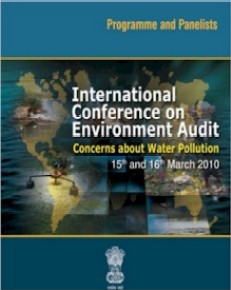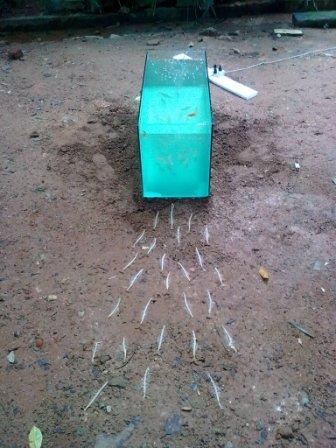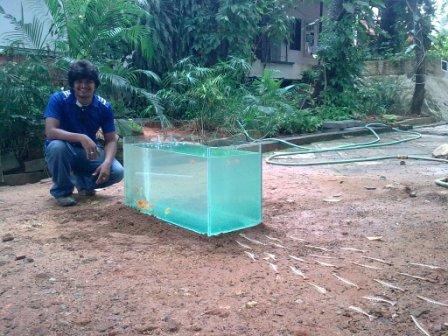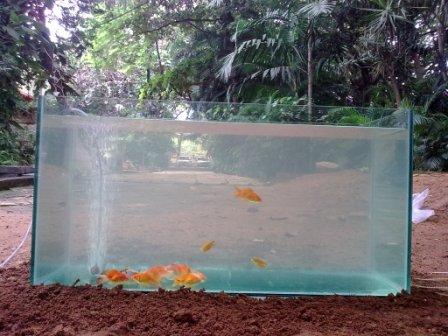Rivers
Save agriculture in Narmada valley
Posted on 20 Sep, 2010 04:44 PMNarmada valley is facing yet another crisis beyond the gigantic dams, which has arisen due to the huge canal network of the Indira Sagar and Omkareshwar canals. The canals of these two dams are not yet fully planned, yet certain estimates, which are not yet final by the Narmada Valley Development Authority show that not less than 10,000 hectares of agricultural land is to be acquired, but a larger acquisition is yet to come up in numerous villages, where even a basic socio-economic survey of the affected land and families is yet to be undertaken.
"Dams on the Himalayas: Environmentalists demand scrapping of projects in Assam, Manipur and Arunachal Pradesh" :News roundup (8-15 September 2010)
Posted on 16 Sep, 2010 04:07 PMWaterbodies/ Rivers
Guidelines for preparation of a river basin master plan - Central Water Commission (2007)
Posted on 14 Sep, 2010 08:19 AMThis deals with the guidelines of the Central Water Commission (CWC) for preparation of river basin master plan, which was revised in 2007 in view of the new challenges and issues that have emerged in the water resources sector. The need for integrated river basin planning, development and management arises from the relationship between the availability of water resources and its possible uses in various sectors.
International conference on environment audit - Concerns about water pollution - CAG (2010)
Posted on 10 Sep, 2010 05:15 PM This link on the CAG website provides the details of an international conference that was held on 15-16 March 2010, in the backdrop of the environmental audit proposed by the the Comptroller and Auditor General (CAG) of India, for management and conservation of the environment .
This link on the CAG website provides the details of an international conference that was held on 15-16 March 2010, in the backdrop of the environmental audit proposed by the the Comptroller and Auditor General (CAG) of India, for management and conservation of the environment .
The purpose of this conference was to deliberate on the causes of pollution, action taken by governments and civil society to address this and environmental, management and legal interventions needed to put lakes, rivers and ground water on the path of sustainability.
More than 20 experts on water and water pollution issues were invited to share their views as panelists during the conference. Apart from these distinguished panelists, the heads of supreme audit institutions from countries like Austria, Maldives, Bangladesh and Bhutan were also present to share their experiences regarding audit of water pollution in their countries.
The essential water : An installation by Sridhar Gangolli at the premises of Alliance Francaise de Bangalore
Posted on 09 Sep, 2010 10:32 AMSridhar Gangolli, an artist with the concern about the life and the living, is once again on the pitch of art. In each of his works of art, he tries to be fresh and spontaneous. He bats with the objects and bowls some thoughts, thus he makes his art.



Transparency demanded in a letter to Jairam Ramesh on Polavaram Project - Himanshu Thakkar
Posted on 04 Sep, 2010 10:43 AM![]()
From:
Himanshu Thakkar
South Asia Network on Dams, Rivers & People,
c/o 86-D, AD block, Shalimar Bagh,
Delhi,
To: Shri Jairam Ramesh
Union Minister of State for Env and Forests (IC), New Delhi
Respected Sir,
I have just seen your letter dated Aug 18, 2010 to Orissa Chief Minister on the aboves subject, uploaded yesterday on MEF website.
- Your letter says that the Forest Clearance has been given to the Polavaram Project on July 28, 2010 is subject to the condition, "... no submergence and displacement of people including STs take place in Orissa and Chhattisgarh...". However, this condition is in complete contradiction with the environment clearance given by your ministry on Oct 25, 2005, which says in para 2, "Total 1,93,35 persons are likely to be affected by this project, out of that 1,75,275 persons in Andhra Pradesh and 6,316 persons from Orissa and 11,766 are from Chattisgarh." It is clear the condition of no submergence and displacement on Orissa and Chhattisgarh, stated in your letter, in the Tribal Development Ministry's condition, and in the forest clearance letter is in complete contradiction with the environment clearance given by you. One of them have to be cancelled due to this contradiction, we would like to know, which one would be cancelled.
Babhli water conflict: Less water, more politics - EPW article
Posted on 01 Sep, 2010 02:13 PMThis paper published in the Economic and Political Weekly highlights the recently growing conflicts over water sharing between states in India and argues that the intensity and periodicity of these conflicts are increasing and that these conflicts are expected to get worse with the increasing uncertainty of rainfall and water availability. The document goes on to describe the latest one in the news, the conflict between Maharashtra and Andhra Pradesh over the Babhli barrage.
The indigenous struggle- A look at three South American films on water rights
Posted on 31 Aug, 2010 02:51 PMThis past weekend was the only international film festival on water, worldwide—Voices from the Water, held in Bangalore in several different locations. Working for a water NGO, I made my schedule free to catch up on some of these movies, to understand what the current issues are and what the film circle is capturing through their lens that we don’t necessarily see from our biased eyes.
Dr G.D. Agrawal s tapasya - Achieved the desired result
Posted on 30 Aug, 2010 12:47 PMDr G.D. Agrawal’s tapasya, his third fast-unto-death, has finally achieved the desired result. Since 2008, Dr Agrawal has been trying to persuade the Government of Uttarakhand and the Government of India that R. (Bhagirathi) Ganga must be allowed to flow in its natural state in the uppermost reach between Gangotri and Uttarkashi. The two governments had plans to construct three new large hydropower projects in this stretch. Dr Agrawal’s fasts have led to the scrapping of all the three projects.
Movie reviews from 'Voices from the Waters 2010' film festival held in Bangalore
Posted on 28 Aug, 2010 08:58 AM
Reviews of some of the movies screened -
“Be water, My friend”
This UNESCO funded film, “Be water, My friend” tracks the research of Professor Gordon Lightgoot, an expert on ancient water monuments as he tries to understand and rectify the alarming drying up of Karez’s in northern Iragi region of Kurdistan.




